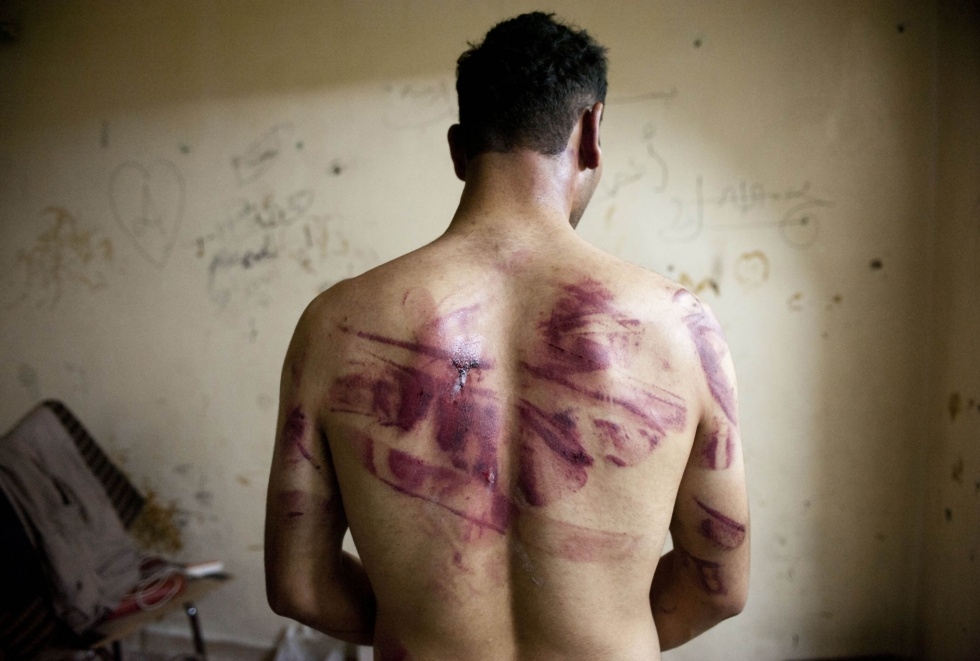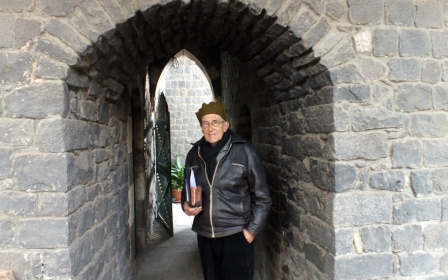Torture 'routinely' used in Syria

The UN's human rights chief on Monday condemned the "routine" use of torture in Syrian detention facilities, as a new report said victims were raped, beaten and had their teeth and toenails pulled out.
Navi Pillay said torture was routinely used in government detention facilities as well as by some armed groups in Syria, where more than 150,000 people have been killed in a bloody civil war that has been raging since 2011.
"In armed conflict, torture constitutes a war crime," said the UN rights commissioner.
"When it is used in a systematic or widespread manner, which is almost certainly the case in Syria, it also amounts to a crime against humanity."
The UN report, based on accounts by 38 survivors, detailed the systematic torture of men, women and children in the war-ravaged country.
Detainees arriving at government detention facilities were "routinely beaten and humiliated for several hours by guards in what has come to be known as the 'reception party'," it said.
A 30-year-old university student described how he was beaten, had his beard pulled out and his feet burned at an Air Force Intelligence facility where he was interrogated in 2012.
In another session, "they pulled out two of my toenails with a plier", he said.
And a 26-year-old woman gave an account of being beaten, raped and having her teeth pulled out.
"They called us prostitutes and spat in our faces," said the woman, whose family rejected her after learning she had been raped.
Detainees tortured to death
Nearly half Syria's population have been forced to flee their homes since peaceful anti-government protests that began in 2011 spiralled into a deadly conflict.
The UN report documented cases of people who died in detention "in circumstances which suggest that torture was the cause".
Investigators also found that several armed groups, including the Islamic State in Iraq and the Levant (ISIL) and the al-Nusra Front, had used torture against men, women and children.
Human rights activists and medical workers seen to be affiliated with other armed groups were particularly vulnerable.
One activist told Pillay's office he had been repeatedly arrested by ISIL last July and August.
"They beat me with electric cables, punched me on my face and hit my head with their rifle butts," he said.
The report also details "abhorrent" conditions in many government-run detention centres.
A 60-year-old man who spent three months in different detention centres, including one run by military intelligence, said 120 men were crammed into a 6x8-metre cell.
"We just slept on each other," he said, adding that his cellmates were tortured and returned to "with open wounds that remained untreated and became infected."
Pillay said torturers must be brought to justice and victims given treatment and fair compensation.
She also reiterated her call for Damascus to allow the UN and other international bodies to monitor conditions in detention centres.
"I urge the government and armed opposition groups in Syria to immediately halt the use of torture and ill-treatment, and to release all those who have been arbitrarily detained in conditions that clearly breach international human rights standards," she said.
Syrian opposition expects Assad's referral to ICC
Meanwhile, a Syrian opposition member said he expected the referral of Bashar al-Assad's regime to the International Criminal Court (ICC) for war crimes.
"The ICC prosecutor has the right to file the lawsuit regardless whether or not the country is an ICC member if he sees that crimes against humanity have been committed," Hesham Marwa, a legal member of the Syrian National Coalition, told Anadolu Agency.
He said that the coalition and international human rights groups have presented documents to the ICC about human rights violations by the Assad's regime in the past three years.
He claimed that some "positive" signs have been given by the ICC prosecutor's office and that "a decision will be issued soon that will make up for the fading hope".
The UN Security Council is due to discuss a French proposal on Tuesday for the referral of the Syrian regime to the ICC for war crimes.
The move, however, is expected to be vetoed by Russia, a main backer of the Assad regime.
Middle East Eye propose une couverture et une analyse indépendantes et incomparables du Moyen-Orient, de l’Afrique du Nord et d’autres régions du monde. Pour en savoir plus sur la reprise de ce contenu et les frais qui s’appliquent, veuillez remplir ce formulaire [en anglais]. Pour en savoir plus sur MEE, cliquez ici [en anglais].


